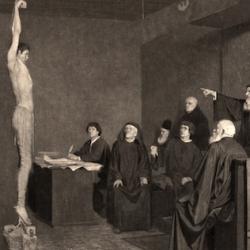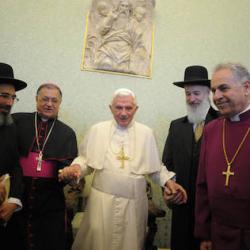Gregg Allison is well-positioned to offer an “evangelical assessment” of Roman Catholic Theology & Practice. Now a professor of theology at South Baptist Theological Seminary, he spent a number of years as a Campus Crusade minister at Notre Dame, has interacted with clergy and lay Catholics over many years in the US and Europe, and studied Roman Catholic theology in both Evangelical and Catholic seminaries.
His book aims to be an even-handed assessment, combining “intrigue” at the extensive commonalities between Catholics and Evangelicals as well as a “critique” of Catholicism. The former provides the context, and sets the tone for the latter. His book is a walk through the Catechism of the Catholic Church. He fairly summarizes Catholic teaching, and then offers an Evangelical rebuttal.
The rebuttals reveal the difficulties of Evangelical assessments of Catholicism. On point after point, Allison admits that there is divergence among Evangelicals. He claims that “many” Evangelicals oppose this or that Catholic teaching, or that a “wide swath” of Evangelicalism disagrees. This is unavoidable: Evangelicalism does not have a catechism to which appeal can be made. Sometimes he overstates Evangelical consensus, as in this: “Evangelical theology objects strongly to the theology and practice of infant baptism” (277), after which he has to qualify his point by admitting that “some portions of evangelical theology practice infant baptism,” though he claims that the Evangelical warrants for doing so are quite different from Catholic (277).
I’m not commenting on the substance of Allison’s point here. I’m observing that Allison assumes the position of spokesman for Evangelicalism. He does it honestly, recognizing diversity. But still: Who died and made Gregg Allison Pope?
This isn’t a slam on Allison. Any Evangelical who claims to speak for Evangelicalism will have to adopt a similar rhetorical posture, or risk qualifying Evangelicalism into its constituent elements. In the absence of explicit consensus among Evangelicals, the theologian ends up setting what he considers a consensus against the bulky mass of the Catholic Catechism. It’s nearly impossible to perform this feat without evoking every-man-for-himself caricatures of Evangelicalism. (Confessional Protestants have a much more secure basis.)
Protestant Evangelicals continue to protest, as we ought. But any Evangelical who enters the lists with Catholicism should know he enters an unequal contest.











